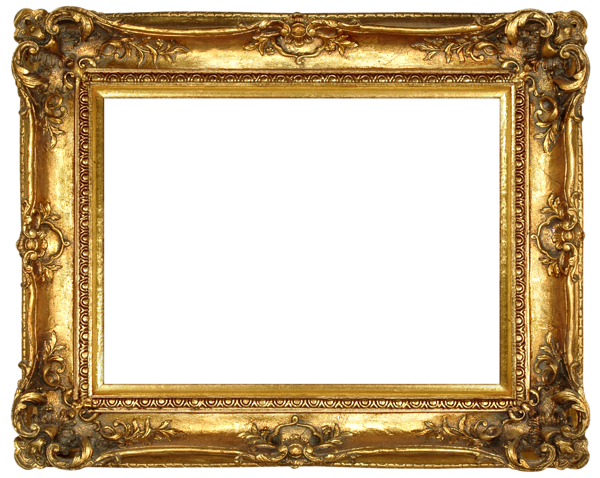
This image has format transparent PNG with resolution 600x478.
You can download this image in best resolution from this page and use it for design and web design.
Picture, photo frame PNG with transparent background you can download for free, just click on download button.
A picture frame is a simultaneously protective and decorative edging for a picture, such as a painting or photograph. It makes displaying the work safer and easier and both sets the picture apart from its surroundings and aesthetically integrates it with them.
The purpose of a picture frame is to protect the art and present it to its best advantage. When framed properly, an artifact is far more likely to remain in good condition for a long period of time.
Traditionally picture frames have been made of wood, and it remains very popular because wood frames can provide strength, be shaped in a broad range of profiles, and allow innumerable surface treatments. Other materials include metals, e.g. silver, bronze, aluminum, and stiff plastics such as polystyrene. A frame surface may be of any color or texture. Both genuine gilding and imitation gold remain popular, although innumerable other surfaces are to be found in most framing establishments. Some picture frames have elaborate molding, which may refer to the subject matter. Intricate decorations are often made of molded, then gilded plaster over a wood base. Picture frame mouldings come in a wide variety of profiles, generally in some sort of L shape with an upward "lip" and a horizontal rabbet. The rabbet functions as a shelf to hold the frame glazing (if any is to be used), some sort of spacer[disambiguation needed] or mat/matte to keep the object safely behind the inner surface of the glazing, the object itself, and backing boards to protect the object from physical damage and environmental pollutants. The lip extends a proportionate distance up from the edge of the rabbet. It restrains materials in the frame and can be used to help set off or reveal the picture aesthetically.
The picture frame may contain a protective "glazing" of picture framing glass or acrylic sheet, e.g. Acrylite or Plexiglas. If the art in the frame is considered dispensable or if the exhibition environment is highly controlled, no glazing may be used. Since the 1980s significant advances have been made in the manufacture of picture glazings, creating a much broader range of options in both glass and acrylic products. Choosing which to use requires taking into account a variety of each object's characteristics: size, media used, condition of media, perceived value of object, anticipated use of the object, e.g. extended exhibition periods or travel. It is wise to consult an experienced art framer or conservator for help in making the better choice. Now, both picture framing glass and acrylic sheet are available with anti-reflective coatings to make the glazing virtually invisible under most lighting conditions. Except for pictures of only temporary interest, a glazing should incorporate a filter to block almost all ultraviolet radiation (a UV filter) from penetrating the glazing. This filter slows the photocatalytic degradation of organic materials in the picture. Both glass and acrylic glazings are available with built-in anti-static properties. This option is necessary for objects with friable or degraded media, which would be pulled off the object and onto the glazing by static electric forces.
Picture frames are generally square or rectangular, though circular and oval frames are not uncommon. Frames in more unusual shapes such as football shapes, stars, hearts can be hand carved by a professional wood carver or carpenter (or possibly molded out of wood pulp). There are also picture frames designed to go around corners. A popular design is the scoop, an indent in the frame adding depth.
"L"-style frames are a simple variety that are constructed with a single L-shaped border of wood, with the bottom part of the L, or rabbet, at the front of the frame to hold in the glass, object and backing, which are secured in from the back
A photo cube is a special type of picture frame, often used to show members of a family, a vacation, or a timeline of someone's life.
Other styles are clip frames (not really a frame at all), box frames and shadow boxes. A digital photo frame is an example of the changing technology of the 21st century.
Macaroni picture frames are a popular craft project for children. Uncooked pasta in various shapes are glued to a frame in a pattern. Sometimes the entire frame is painted.
Some contemporary painters and photographers who work on canvas "gallery-wrap" their artwork, i.e. extend the image around the edges of the stretched canvas, thereby precluding use of a traditional frame. In those instances, the object may be mounted so it floats visually within the protective surround. Joan Miró once made a work specifically in order to frame it with a flea market frame.
In this page you can download free PNG images: Picture, photo frame PNG images free download